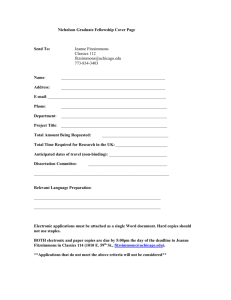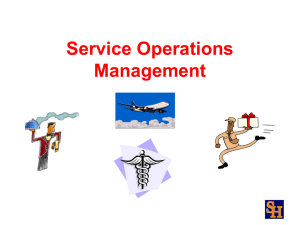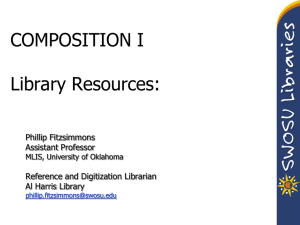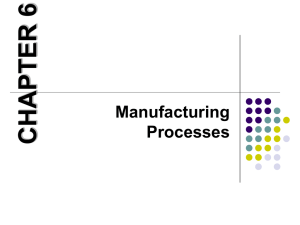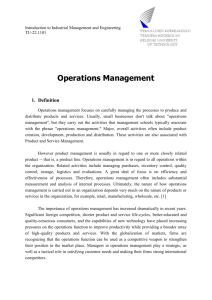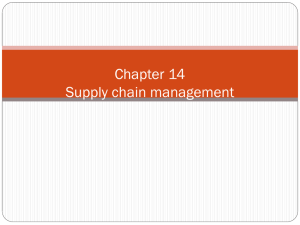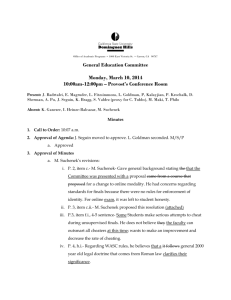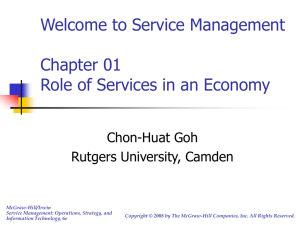Course Outline of Service Opn Management
advertisement
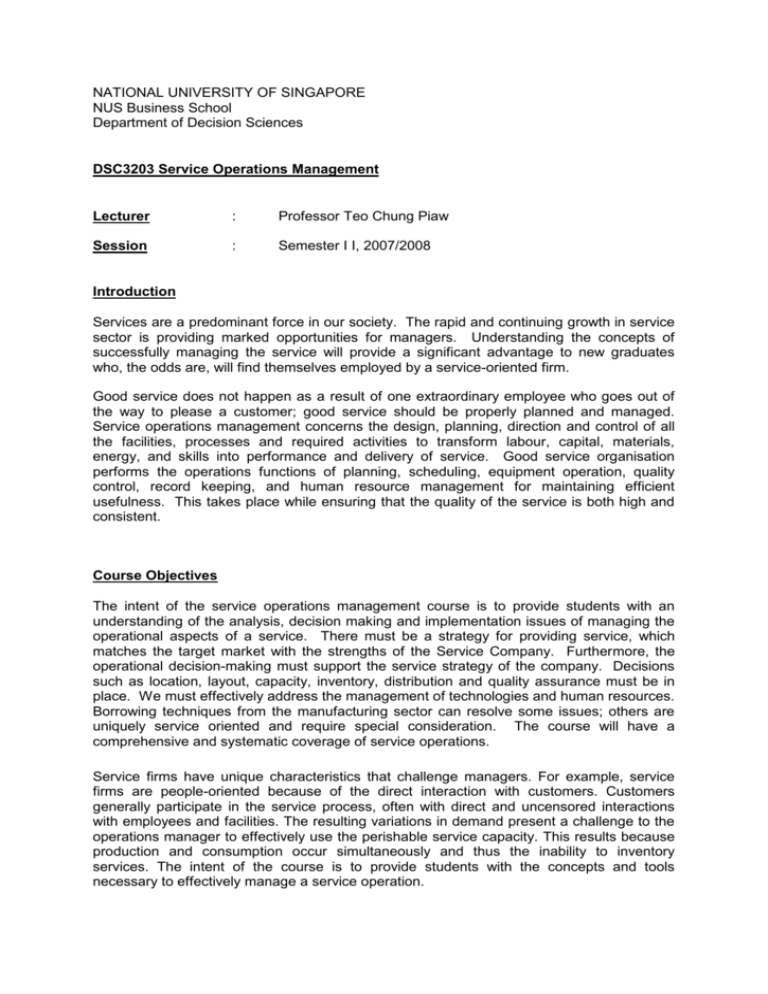
NATIONAL UNIVERSITY OF SINGAPORE NUS Business School Department of Decision Sciences DSC3203 Service Operations Management Lecturer : Professor Teo Chung Piaw Session : Semester I I, 2007/2008 Introduction Services are a predominant force in our society. The rapid and continuing growth in service sector is providing marked opportunities for managers. Understanding the concepts of successfully managing the service will provide a significant advantage to new graduates who, the odds are, will find themselves employed by a service-oriented firm. Good service does not happen as a result of one extraordinary employee who goes out of the way to please a customer; good service should be properly planned and managed. Service operations management concerns the design, planning, direction and control of all the facilities, processes and required activities to transform labour, capital, materials, energy, and skills into performance and delivery of service. Good service organisation performs the operations functions of planning, scheduling, equipment operation, quality control, record keeping, and human resource management for maintaining efficient usefulness. This takes place while ensuring that the quality of the service is both high and consistent. Course Objectives The intent of the service operations management course is to provide students with an understanding of the analysis, decision making and implementation issues of managing the operational aspects of a service. There must be a strategy for providing service, which matches the target market with the strengths of the Service Company. Furthermore, the operational decision-making must support the service strategy of the company. Decisions such as location, layout, capacity, inventory, distribution and quality assurance must be in place. We must effectively address the management of technologies and human resources. Borrowing techniques from the manufacturing sector can resolve some issues; others are uniquely service oriented and require special consideration. The course will have a comprehensive and systematic coverage of service operations. Service firms have unique characteristics that challenge managers. For example, service firms are people-oriented because of the direct interaction with customers. Customers generally participate in the service process, often with direct and uncensored interactions with employees and facilities. The resulting variations in demand present a challenge to the operations manager to effectively use the perishable service capacity. This results because production and consumption occur simultaneously and thus the inability to inventory services. The intent of the course is to provide students with the concepts and tools necessary to effectively manage a service operation. Course Materials Recommended Text Service Management: Operations, Strategy, Information Technology by James A. Fitzsimmons and Mona J. Fitzsimmons, 2005, Fifth Edition, McGraw Hill Supplementary & Reference Text Successful Service Operations Management by Metters, King-Metters, Pullman and Walton, 2006, Thomson Learning. Assessment Method Class Participation (Group) Case Presentation (Group) Term Project Assignmentsx2 Final Exam 10% 10% 20% 20% 40% Tentative Course Outline 1. The Role of Services in an Economy and the Nature of Services 2. Services Strategy 3. New Service Development and Technology 4. Services Quality 5. Services Facility Location 6. The Service Encounter 7. Managing Supply and Demand 8. Managing Waiting Lines 9. Managing Capacity and Demand 10. Managing Service Supply Chain 11. Managing Facilitating Goods 12. Managing Service Projects
